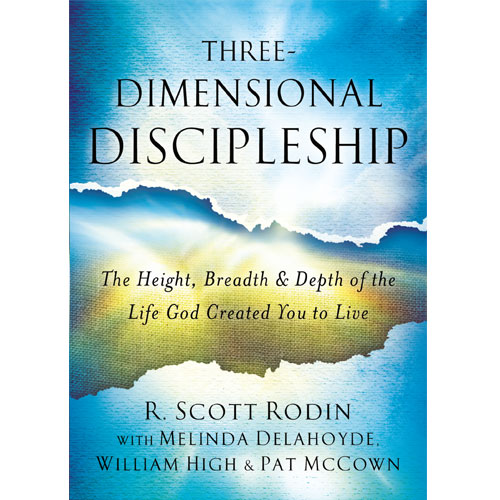No Regrets
By Kelsey McFaul
Missionary doctor Rick Sacra on the stewardship of vocation, platform, and life itself

“When Rick left at the beginning of August, we understood there was a risk he could become sick with this deadly virus. But he would want you to know that he would not be afraid to pass into eternal life with the Lord, because…Christ died for all, those who live no longer live for themselves but for Him.”[i]
On September 4, 2014, at 5:00pm Eastern Standard Time, Dr. Rick Sacra’s wife Debbie held a press conference declaring to the world that her husband knew the cost of his work with Ebola patients in Liberia. Nevertheless, she said, Rick was a steward: his life was not his own.
Just minutes before, at around 8:45pm Greenwich Mean Time, Rick, severely sick with Ebola and having spent the last six days in isolation, boarded a plane in Liberia. He was headed to the United States.
“It’s kind of funny to me; I’m famous because I got sick,” Rick jokes over three years later. “That’s not such a great thing to be famous for. But if it opens a door for sharing deeply held convictions and values, then that’s not bad.”
A medical missionary to Liberia, Rick experienced overnight name recognition as the third American medical professional to contract Ebola in west Africa and the first to return, a mere five months after his infection. The 2014 West African Ebola virus epidemic was the most widespread outbreak in history, infecting more than 28,000 people and killing more than 11,000.[ii]
“I’ve been here 15 years. The Ebola part of my Liberia experience is like three percent of it all. This is my home.”
Rick’s been working in Liberia for almost two decades with SIM, an international Christian mission organization,[iii] but his desire to dedicate his life to others began at an early age.
“I remember walking with my dad in the woods when I was in third grade. And I said, ‘Dad, I really want to be a doctor. What would I have to do to be a doctor?’”
As a kid, Rick was fascinated both by his family practice doctor and the missionaries who occasionally visited his church.
“I was the kind of curious kid who would go up after the missionary presentation and ask more questions. I would always ask, ‘Do you need missionary doctors?’ People would say, ‘Oh yeah, that’d be great.’ It was very much just a conviction in my head. I hadn’t even been out of the country, [but] I had committed myself to this thing I had never actually done.”
Rick received his B.S. from Brown in 1984 and his M.D. from the University of Massachusetts School of Medicine in 1989. In between, he spent a year in Liberia as a medical student, and by 1995, he was back, this time as a fulltime missionary with his wife and two of his three sons.
“I’ve always been with ELWA, the Eternal Love Winning Africa Hospital, which is just outside Monrovia. In the past, 2008-2010 I was the medical director, but in 2010 we left really for educational reasons for our kids. Since 2013, I’ve been kind of back and forth.”
Cross-cultural living requires Rick to tack between different definitions of ownership, management, and integrity, and informs his understanding of stewardship. In America, steward leaders often struggle to see themselves as managers rather than owners of their resources, while it’s a Liberian norm to dispose of resources freely, often as an incentive for quicker results.
“I have $500 in my pocket that belongs to my organization. If I’m in America and someone is dying and needs my help, it’s wrong to spend that money. I’m not supposed to do that. Here, you’d be wrong if you didn’t do it. God put that money in my pocket.”
Rick acknowledges that their own expectations are often the most difficult for missionaries or those new to Liberia to navigate, and that much of his mentorship addresses the complexity of cultural differences.
“You either find people trying to be true to themselves in terms of integrity and honesty and accountability, and breaking relationships in that process. Or you find people building and maintaining relationships but losing something of their convictions.”
How then, in a vocation that seeks to address both physical and spiritual needs while interacting across cultures, does one measure success?
“Figuring out how to be true to who you are and how to be true to the Lord. And keep relationships intact at the same time….God makes us who we are. My approach is often to say, ‘Lord, have you given me this conviction? Or is this just me?’”
It was just such a conviction that brought Rick back to Liberia in August 2014. He’d been in the country earlier in the year during the early months of the Ebola outbreak, but returned when colleagues Dr. Kent Brantly and nurse Nancy Writebol both contracted the disease and were flown to the United States.
“Liberia’s health system is in the bottom 10 in the world. We were probably starting to climb up from the bottom five into the bottom 10 and then Ebola hit. We lost 12 physicians, 180 nurses. It definitely set us back.”
Rick thinks he contracted the disease while working in ELWA’s maternity ward. When he arrived in Liberia’s capital city on August 4, the hospital was unable to obtain Ebola screening results before admitting patients for labor and delivery. It’s likely Rick contracted Ebola from the bodily fluids of one of the women he treated, though he doesn’t know which one.
He arrived in the United States and was immediately taken to the University of Nebraska Medical Center in Omaha. Rick spent three weeks in a specialized facility equipped to handle level four pathogens, where he was treated with a combination of experimental drugs, blood serum from Dr. Brantly, and supportive care. He also attended physical therapy and had a bout of pneumonia and eye inflammation.
“I have no regrets about being here. I have no regret about having had Ebola. I even feel that the Lord used that….To see Christian missionaries presented by journalists in this kind of positive light was unprecedented.”
Debbie’s press conference was specifically timed to correspond with Rick’s departure from Liberia; only serendipitously did it also correspond with the five-o’clock evening news.
“Everybody carried it live on the news, uncut and unedited. It’s great if you want to get to know my wife’s heart. She read Philippians 1, to live is Christ and to die is gain.”
In a very public way, Debbie and Rick proclaimed that they were not the owners of their lives, skills, or spouses but had relinquished them in service to God and to others. In the midst of a national and international conversation characterized by fear, protectionism, and crisis control, they acted as radical stewards.
“We got to say, in front of millions of people, that we do what we do because we love the Lord Jesus Christ. That was amazing.”
[i] “Debbie Sacra, wife of Dr. Rick Sacra, speaks on Ebola diagnosis.” YouTube video, September 4, 2014. https://www.youtube.com/watch?v=GEw4ZdXSZYk
[ii] “2014 Ebola Outbreak in West Africa – Case Counts.” Centers for Disease Control and Prevention (CDC), April 13, 2016. https://www.cdc.gov/vhf/ebola/outbreaks/2014-west-africa/case-counts.html
[iii] Established in 1893, SIM is an international Christian mission organization with nearly 300 workers of 70 nationalities serving in 65 countries around the world. SIM missionaries carry out health care, education, community development, and Christian witness work on every continent. www.simusa.org





